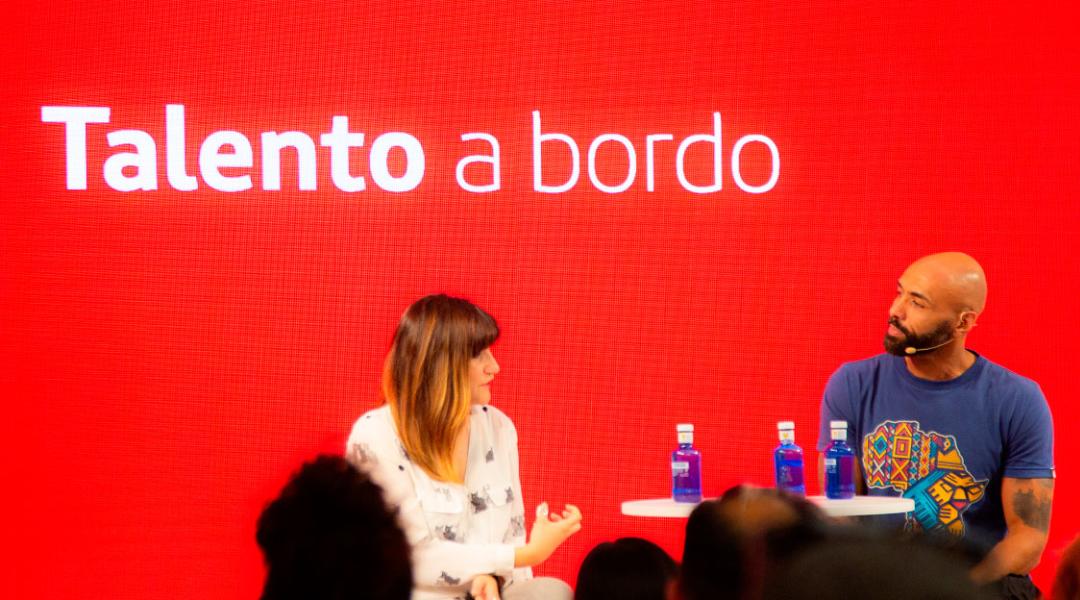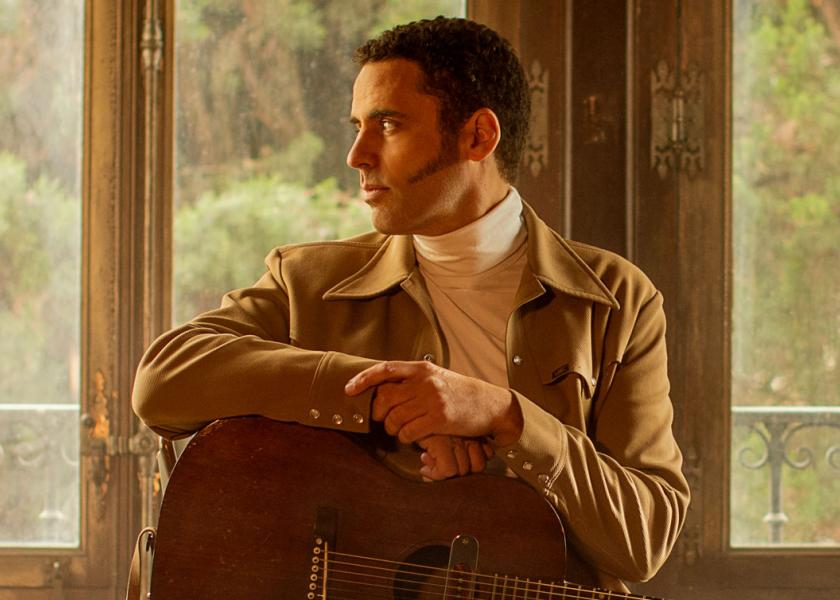Rozalén and El Chojin
Holy insanity

When two people connect, their talents feed each other and become richer. That is precisely what happened to Rozalén and El Chojín last year, when they worked together and released a song ('No es egoísmo') which combined the best of both their musical worlds. On the 25th of June, they got together again at Espacio Iberia, and their talk revolved around the ‘insanity’ they devote their lives to: music.
Distance is relative in music. Initially, Rozalén and El Chojín’s musical styles —pop and hip hop, respectively— don’t seem to have much in common, but last year they came together to write a song (No es egoísmo) which became a success. Beyond their musical styles, there’s something they both have in common: their passion for music. A passion that, during their meetup at Espacio Iberia on the 25th of June, El Chojín described as “holy insanity”. “I’m not saying some works surpass others, but there are differences between those that are artistic and those that aren’t. We go over and over a song and there’s no objective way of knowing when it’s finished, you simply feel it,” the rapper assured. Following on from this thought, Rozalén gave a specific example: “I spent five years trying to make the pieces of Entonces fit together [song on her latest album: El abrazo]. If, at the end of each album, I took stock of the time I’ve spent on it and people knew...”
“The talent isn’t necessary to start out in music, it can be built along the way” — El Chojin
This dedication is often not valued enough, according to El Chojín: “The artist is disregarded because people believe they do something that comes easily to them, and all the work that goes into a song is undervalued. You can have a gift, innate talent, but without work, it’s useless. In fact, talent isn’t necessary to start out in music, it can be built along the way. I taught myself, for example.” Rozalén also defended that work, but in turn admitted that, sometimes, music requires something more: “I can spend years on one song and with others, however, magic happens, and I have it in just a couple of hours. And not only that, but then it’s also the one that reaches people the most.” El Chojín measures the time it takes him to write a song differently: “Even if it sounds corny, it takes a lifetime because you express the experiences you accumulate. I’m always writing and couldn’t do it without a lived experience behind it. We work 24 hours because everything revolves around music.”

The chat between Rozalén and El Chojín at Espacio Iberia delighted the audience.
Since it’s such a demanding job, the following question arises: Have you ever wondered what you would’ve been if you weren’t musicians? “I studied Psychology in Murcia and then came to Madrid to do Music Therapy. If I’d taken another path, I would’ve done something social,” Rozalén confessed. El Chojín is an aeronautical engineer and knows how to fly planes, but he doesn’t even consider it: “We’d have to ask that other I? Nobody knows which is the right path and it’s the decisions we take that shape us.” And what role does destiny play? “I believe there’s a plan and we have a purpose, but the most important thing is to enjoy the journey. I’ve never set myself a specific goal, the only thing I aspire to is to always have songs, to have a story to tell,” Rozalén declared. “I don’t believe in destiny —El Chojín disagreed—, I believe more in the decisions and how our environment conditions us. I have a song called El viaje [The journey] and I often feel like we’re thinking about getting somewhere, but that place is just part of the journey.”
We’re music
What does music mean to two people who live and breathe it? “Music is more necessary than people think,” El Chojín defended. And he gave an example: “At the beginning, I used to hate reggaeton, until one day at a bar I saw loads of people dancing and enjoying themselves; I realised that it managed to help people forget their problems for a few minutes. Music has more to do with the feeling it awakens in listeners than the technique used to write it.” “We’re music —celebrated Rozalén—. When I studied music therapy, I learnt why some chords inspire joy and others sadness, and it makes sense because our heart beats at a particular rhythm, we walk at a particular pace... It’s impossible to live without music. Over time you realise that all kinds of music are necessary because at four in the morning I also twerk (laughs). It shouldn’t be looked down on.”
“I’ve never set myself a specific goal, the only thing I aspire to is to always have songs, to have a story to tell” — Rozalén
Success is usually associated to happiness, but it depends how you envision both things. “If we believe that success is related to filling a stadium or having a number one hit, it would be normal for almost 100% of musicians to be frustrated —El Chojín declared—. For me, success has been finding a place where I can truly escape from everything, I don’t like to become the star of my own story. I don’t consider myself a happy person, I only find happy moments when I stop chasing them. Because we’re looking for happiness that doesn’t exist, which is what we’re sold.” Rozalén admitted that her understanding of happiness has changed: “A few years ago this wasn’t the case, but now my favourite moment is when I’m at home in the countryside with my cat purring on my lap, when I light the fire, when I take care of my tomato plants, when I cook slowly, when I walk in the hills... I’m turning into my grandmother! (laughs). The simple things make me increasingly happy.” They both admit that applause is a synonym of happiness for both of them and, even though Rozalén warned that she gets “nervous” when she receives it, the talk ended with a well-deserved big hand for the artists.


